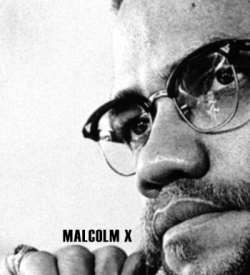Dead people are a regular part of my life.
I see them and the aftermath of their deaths quite frequently. My job requires that I'm there when people die violently, and I must sort through what gets left behind.
As I listened to the Trayvon Martin 911 calls it struck me that my life is not normal. The lives of the people who live in the neighborhoods where I see recurring violence are not normal. We do not have the same reaction to real violence that most Americans have, and that says something profound.
Those tapes show a neighborhood in distress. People are amazed, shocked and frightened that gunshots have disturbed their tranquil neighborhood and they understandably fear for their safety and the safety of their loved ones. It is clear as they talk to police that gunshots are not something they are used to.
This is a neighborhood more familiar with dog walking and the occasional property crime than murder. It is not a place of bodies and blood. One woman, who was several streets away from the shooting, was so distressed that police discussed possibly sending out a crime victim counselor to discuss the incident with her just to help her cope. And she never even saw Trayvon Martin.
Those tapes made me think how different life can be for different people. In the neighborhoods where gunshots are background noise, and dead bodies and makeshift memorials are the norm, people have much more subdued reactions to violence. Death becomes a spectacle, an event that gathers people together to interact. There is some sadness, particularly from distraught family members, but many of the people who gather whenever another young black man dies aren't deeply moved. Their lives are so closely intertwined with death that the departure of a soul from a body has become borderline blase.
But what does that do to a person? The people of Sanford were crying, wailing and shaking when a stranger died in the midst. Their reactions make sense when you consider the awesome finality and pain of death. But, do people have the luxury of such a visceral reaction when every day could bring another body? Can you allow death to sear your soul if it comes more frequently than the rain? You can't allow it because it would be impossible to function. But what do you lose by cauterizing that part of your soul?
What do those of us who see death so regularly lose? How does it change the way we see the world and treat others? What type of world does it create? Why are some people, those who live in dangerous neighborhoods, forced to carry that burden?
Why?
Share
Pay Attention

This work is licensed under a Creative Commons Attribution-Noncommercial-No Derivative Works 3.0 Unported License.
Subscribe to:
Post Comments (Atom)
Labels
- Abuse (1)
- angry ish (1)
- character (1)
- comedy ish (1)
- commerce (1)
- connecticut shooting (1)
- crime ish (12)
- Detours (1)
- economic ish (1)
- ethics (1)
- Family ish (27)
- Fiction ish (1)
- Gandhi (7)
- Gender ish (1)
- Gustav (2)
- humanity (1)
- Humor ish (10)
- Justin Hudson (1)
- knowlege (1)
- Little Engine that Could (1)
- Love ish (2)
- mass murder (1)
- Media ish (9)
- mel gibson (1)
- Money ish (2)
- Music ish (3)
- obama ish (10)
- pack of niggers (1)
- pleasure (1)
- Police ish (7)
- Politcal ish (2)
- Political ish (97)
- Race ish (151)
- racism (3)
- Random ish (130)
- relationships (11)
- Religion ish (22)
- Satirical ish (2)
- science (1)
- sin (6)
- Six agents of corruption (7)
- social (7)
- speech (1)
- Sports ish (15)
- Wire ish (3)



No comments:
Post a Comment